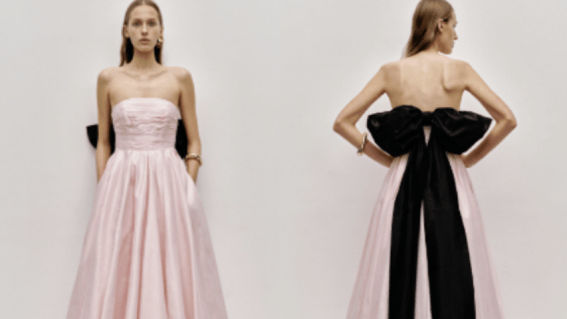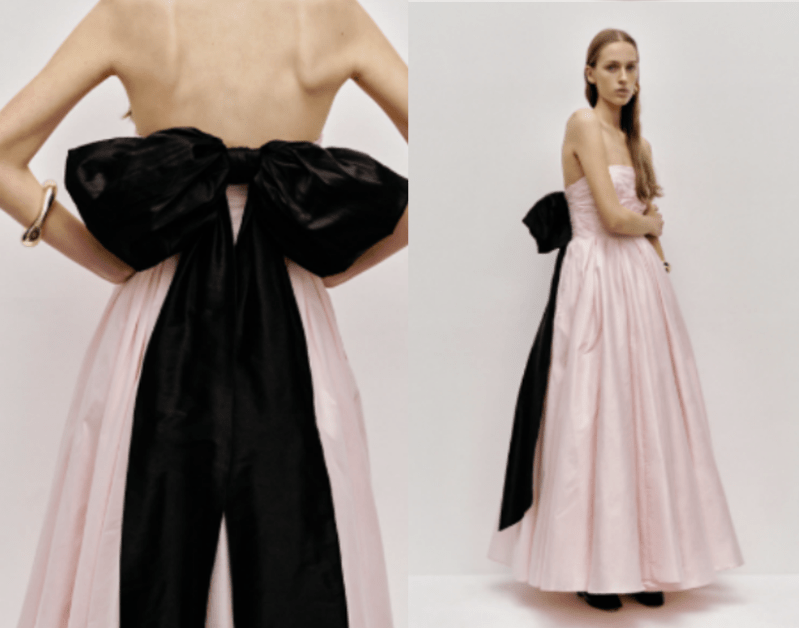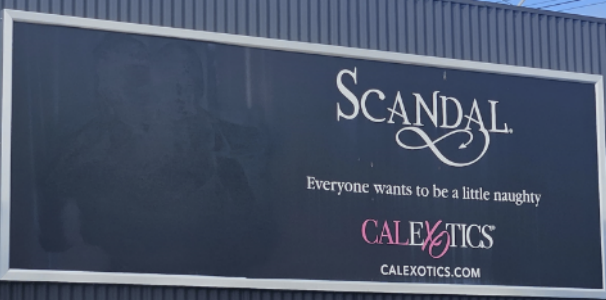
Fashion site pulls ‘unhealthily thin’ image after Ad Standards ruling

Images from the "Thea Gown" product listing
A product listing on fashion brand Aje’s website has been censured by Ad Standards for “promoting an unrealistic body image”.
A complaint was made to Ad Standards over two listings — for the “Thea Gown” and “Eartha Mini Dress” — that feature “models who appear excessively underweight”.
“This depiction is harmful as it promotes extreme thinness as aspirational, which may negatively impact community health, particularly among young people. The presentation of models in such a state is not a truthful or responsible portrayal of body image and risks encouraging disordered eating or body dissatisfaction,” the complainant argued.
The complainant claimed the images breached Section 2.1 (Community Standards) and Section 2.6 (Health and Safety) of the AANA Code of Ethics, adding that they “present body types in a way that contravenes prevailing community standards” and are “normalising unhealthy body shapes and promoting harmful ideas”.

More images from the “Thea Gown” product listing
Aje originally defended the listings, outlining health and wellbeing protocols and fashion industry standards in its response.
“AJE Studio maintains that our advertising material complies with all relevant sections of the AANA Code of Ethics. Our partnership with IMG Models ensures professional standards and model welfare, while our creative approach reflects legitimate artistic and commercial expression within the fashion industry,” the brand said.
According to the case report, the Panel did not make a determination on Section 2.1 for either listing, but found the “Thea Gown” breached Section 2.6. While it said it “could not make a determination on whether the woman depicted is actually unhealthy”, her poses emphasised her “slight stature and the impression that she is unhealthily thin”.
It therefore contained material “contrary to prevailing Community Standards” on health and safety.
Aje responded, confirming the “Thea Gown” images will be modified or discontinued.
A third product listing from Aje was brought up with claims it also breached Section 2.6 in a separate complaint, but was dismissed by the Panel as it “did not contain enough detail to emphasise unrealistic ideal body images”.
The Panel also recently upheld a complaint made against another fashion brand, Mister Zimi, for a Facebook ad that featured a woman riding a bicycle without a helmet.

The Facebook ad
“Given that this brand is one many young women aspire to, I was concerned about this risks influencing them to view unsafe cycling as acceptable. This is inconsistent with advertising standards that expect responsible depictions of role models and safe practices,” the complainant said.
The Panel found it similarly breached Section 2.6. Mister Zimi discontinued the ad and confirmed it will not be used again.
Another recent breach involved Black Knight Erotica, whose South Australian billboard for its adult store depicted a woman in lingerie with a lace hood, being physically restrained by a fully clothed man. It also featured text saying “Scandal. Everyone wants to be a little naughty.”

The billboard before
It breached Section 2.2 (Exploitative or Degrading) as the woman was “depicted in a manner which suggests that she is an object or commodity”, according to the case report.
Black Knight Erotica did not provide a response to the complaint. It did, however, respond to the Panel’s decision, modifying the billboard by blocking over the man and woman, leaving just the text.

The billboard after


